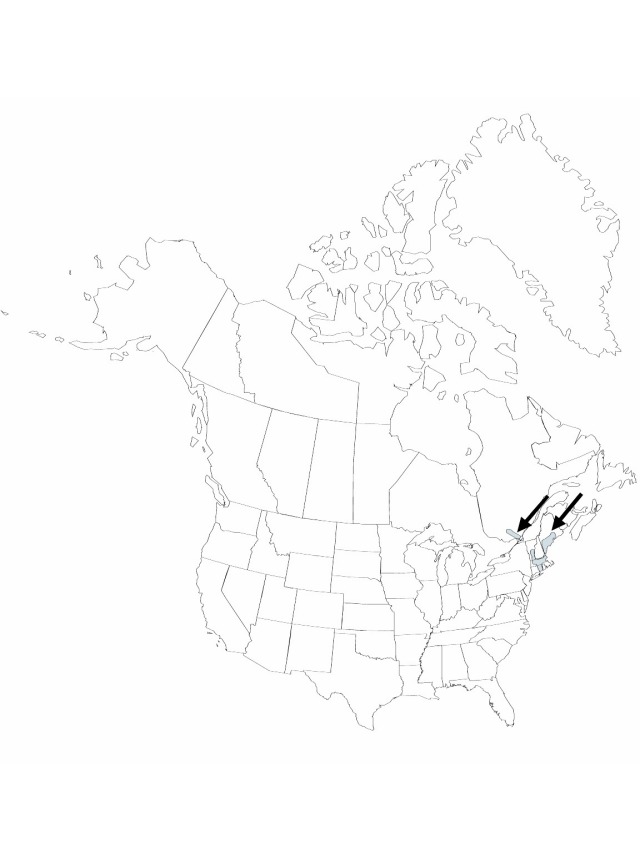familyPotamogetonaceae
genusPotamogeton
speciesPotamogeton pusillus
subspeciesPotamogeton pusillus subsp. gemmiparus
Difference between revisions of "Potamogeton pusillus subsp. gemmiparus"
Novon 6: 370. 1996.
Common names: Potamot gemmipare
Endemic
Basionym: Potamogeton pusillus var. gemmiparus J. W. Robbins in A. Gray, Manual ed. 5, 489. 1867
Synonyms: Potamogeton gemmiparus
Treatment appears in FNA Volume 22.
FNA>Volume Importer |
imported>Volume Importer |
||
| (One intermediate revision by the same user not shown) | |||
| Line 8: | Line 8: | ||
}} | }} | ||
|common_names=Potamot gemmipare | |common_names=Potamot gemmipare | ||
| + | |special_status={{Treatment/ID/Special_status | ||
| + | |code=E | ||
| + | |label=Endemic | ||
| + | }} | ||
|basionyms={{Treatment/ID/Basionym | |basionyms={{Treatment/ID/Basionym | ||
|name=Potamogeton pusillus var. gemmiparus | |name=Potamogeton pusillus var. gemmiparus | ||
| Line 56: | Line 60: | ||
|publication title=Novon | |publication title=Novon | ||
|publication year=1996 | |publication year=1996 | ||
| − | |special status= | + | |special status=Endemic |
| − | |source xml=https:// | + | |source xml=https://bitbucket.org/aafc-mbb/fna-data-curation/src/2e0870ddd59836b60bcf96646a41e87ea5a5943a/coarse_grained_fna_xml/V22/V22_88.xml |
|genus=Potamogeton | |genus=Potamogeton | ||
|species=Potamogeton pusillus | |species=Potamogeton pusillus | ||
Latest revision as of 20:32, 5 November 2020
Leaves: stipules convolute; blade 1.1–6 cm × 0.2–0.7 mm, apex subulate, lacunae present or absent, 0–2 rows on each side of midrib; veins 1. Inflorescences: peduncles 1–3 per plant, cylindric; spikes cylindric, continuous. Fruits obovoid, sides centrally concave; beak median.
Phenology: Flowering and fruiting summer–fall.
Habitat: Acid waters of lakes and streams
Elevation: 0–100 m
Distribution

Que., Conn., Maine, Mass., N.H., N.H., Vt.
Discussion
Potamogeton pusillus subsp. gemmiparus is an uncommon taxon that superficially resembles subsp. pusillus. It can be separated, however, by its continuous inflorescences, whereas those of subsp. pusillus are interrupted.
Selected References
None.
Lower Taxa
None.